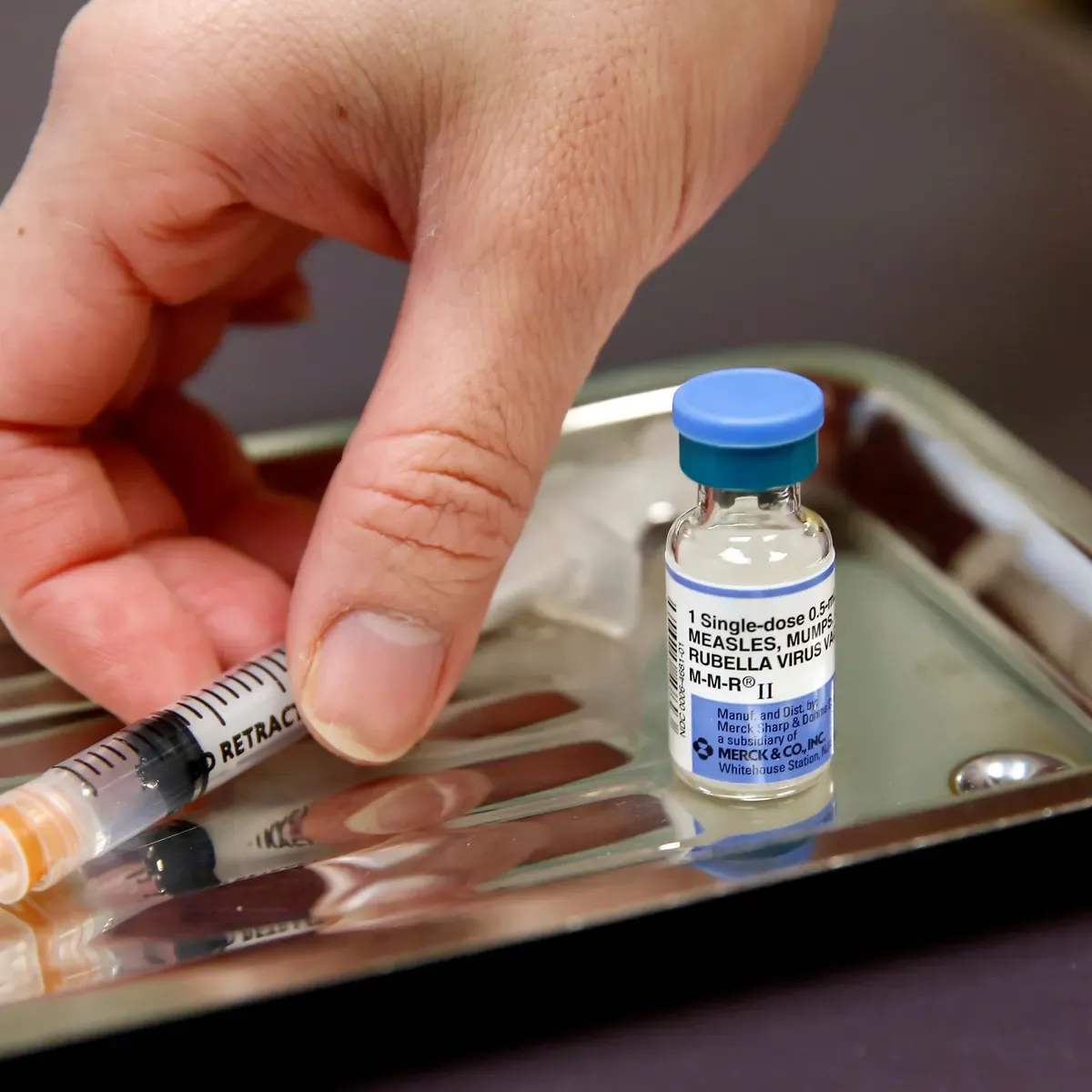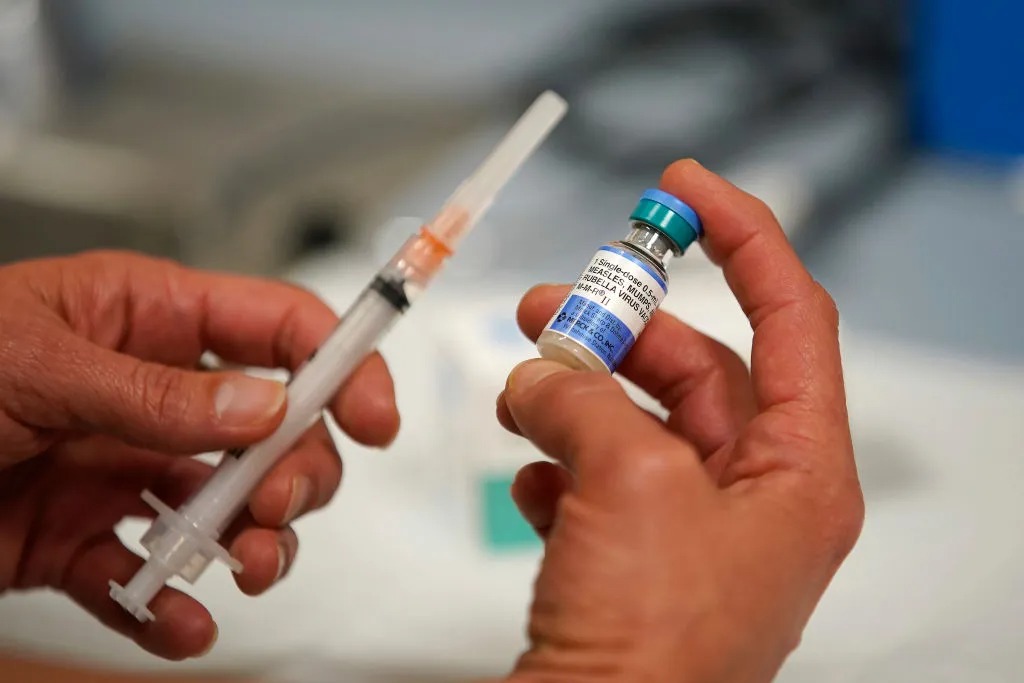As the threat of measles looms with a growing number of cases in the UK and Europe, health authorities are urging all eligible individuals to prioritize receiving the MMR vaccine, especially before making any Easter travel plans.
The Public Health Agency (PHA) has initiated a mass vaccination campaign in collaboration with health trusts and GP surgeries targeting individuals aged between 12 months and 25 years who may have missed one or both doses of the MMR vaccine.
Louise Flanagan, Consultant in Public Health at the PHA, emphasized the importance of vaccination in preventing the spread of measles. This highly infectious disease can have severe and potentially fatal consequences. She highlighted the increased risk of measles transmission, particularly when traveling to regions experiencing high case numbers.

MMR (Credits: WWLP)
Individuals are encouraged to verify their vaccination status by checking their child’s red book or consulting with their GP practice. For those who have missed any vaccination, prompt appointment scheduling is advised to ensure maximum protection.
Children aged 12 months to 5 years can receive the vaccine through their GP practice, while individuals aged 6 to 25 can attend vaccination clinics organized by Health and Social Care (HSC) Trusts. Details regarding trust clinics are available on the indirect website.
Measles, caused by a highly contagious virus, was once prevalent among children but saw a decline following the introduction of the MMR vaccine. However, recent trends indicate a decrease in vaccination coverage, underscoring the need for enhanced efforts to prevent the spread of preventable diseases like measles.

MMR vaccine (Credits: The Guardian)
Flanagan reiterated the safety and efficacy of the MMR vaccine, emphasizing its role in safeguarding against measles, mumps, and rubella. She cautioned that failure to vaccinate leaves individuals vulnerable to severe complications associated with these diseases.
While measles primarily affects children, it can occur at any age and spreads easily through direct contact or airborne transmission when infected individuals cough or sneeze. Maintaining high vaccination rates is crucial in curbing the spread of measles and protecting public health.























